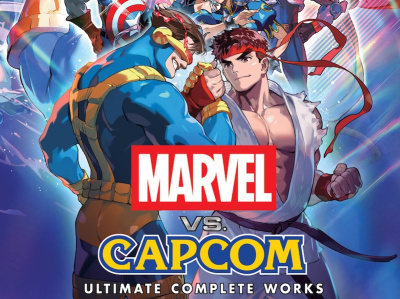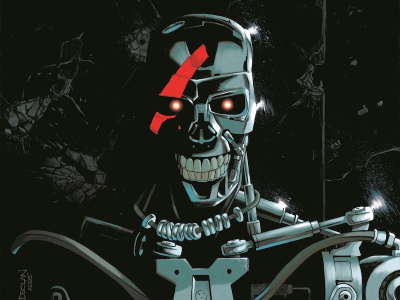Confessions of a Comic Book Guy is a weekly column by retailer Steve Bennett of Mary Alice Wilson's Dark Star Comics of
An Apology
In this column as originally published on Tuesday, November 2nd I incorrectly wrote Platinum Studios was not paying upfront the creators of its Cowboys & Aliens graphic novel; I have since discovered I was misinformed. I apologized to Dan Forcey of Platinum Studios, who accepted that it was never my intention to disparage the company or impugn its reputation. Although I am clearly guilty of not doing enough research I hope readers of ICV2 will accept this lapse for what it was; an honest mistake.
It won't happen again.
Last week while writing about Gladstone suspending publication of several of its titles, I mentioned some of the more unconventional European Disney material that the publisher should be translating into English, like Paperinik (the super-hero version of Donald Duck)* or Wizards of Mickey (Lord of the Rings a la Disney). If any of you were thinking you'd like to see some of what you've been missing...you can do exactly that. Andrew Kaplan was good enough to alert me that the Disney Comics Worldwide Website reported you can go to wizardsofmickey.com and download the Wizards of Mickey serial for free (though of course it's in Italian). And as DCW said it, 'Putting comics online for free is an unprecedented event in Disney comics' history!'
And that's a sad thing, considering Mickey Mouse is facing such stiff competition from Naruto and Zatch Bell. To me, it seems that a cost effective way of raising the profile of the Disney characters among kids would be to crack open the vault holding decades of comic books and strips and post a fraction of them online.
One company that seems to have a handle on utilizing the Internet is Platinum Studios. A quick trip to their Website and I found this quote concerning their release on the Internet first, print later policy: 'Making the content available for free, supported by title-specific Websites, online trailers and Web advertising, will drive reader and retailer awareness and boost print sales - just as radio airplay drives music sales.'
And, just in time for Christmas, after a decade Platinum will finally publish something (with a little help from Image) - Cowboys & Aliens, a 112 page graphic novel - for only $4.99. OK, that's pretty thin for a graphic novel, but with DC now publishing some of their superhero material at a staggering, you-simply-must-be-kidding price of $3.99, well, it's a heck of a bargain. It's a textbook example of how the Internet is going to change not only how publishers promote but how we sell graphic novels.
At least Platinum is compensating the creators for the material being posted on its Drunk Duck web site; upon reflection what they're offering really is a 'new model' since nobody (for the most part) pays the creators of Webcomics. Scott Kurtz of PVP spent years absorbing the production and promotion costs of their comics with only revenue from selling ad space on their Websites coming in. But eventually he signed a deal with Image and now has several trade paperback collections in print.
And then there are once print comics like Phil Foglio's Girl Genius that are going online; nobody's paying Phil to produce new episodes, but he knows he has enough fans reading him online who'll pay for the inevitable collection to make creating it worth his while. And that's good news, seeing as how over the last decade we've seen the independently owned and operated comic book become nearly extinct due to competition from both the major publishers and the plethora of licensed titles which have flooded the shelves.
On the downside, I wouldn't be surprised if the next guys trying to create another superhero 'universe' did it online (and used the 'web comic model' as an excuse to defer paying its creators). But the upside might mean great comics that have struggled to find a large enough audience to support them (just off the top of my head, Mr. Monster, Nexus, etc.) could become more cost effective thanks to the web (after all,







